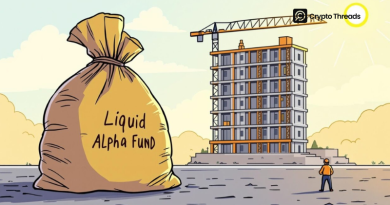Vietnam’s Crypto Pilot Fails to Attract Applicants Amid Strict Rules
Vietnam’s ambitious crypto pilot program has received zero applications since its launch, as tough capital requirements and bans on stablecoins and tokenized securities deter local and foreign firms. Officials now face pressure to adjust the program before 2026.
- No companies applied to Vietnam’s five-year crypto trading pilot.
- Program requires at least $379 million in capital per applicant.
- Bans on stablecoins and tokenized assets limit eligible products.
- Neighboring countries like Singapore and Japan offer lighter rules.
Vietnam’s Ministry of Finance confirmed that not a single company has applied to join the nation’s new crypto trading pilot, highlighting growing concerns over its strict entry requirements. Deputy Finance Minister Nguyen Duc Chi told local media that, although the government is eager to move forward, no proposals have been received so far. He explained that the program allows up to five licensed participants but progress depends on how well companies can meet the demanding qualifications.
The crypto pilot was officially launched in early 2025 under Resolution 05/2025, with the goal of building a regulated framework for digital asset trading. However, industry experts say the program’s heavy compliance burden has scared off potential applicants. Each crypto asset service provider (CASP) must maintain a minimum registered capital of 10 trillion dong — roughly $379 million — putting it on par with full commercial banks. For most startups or fintech companies, that figure is unrealistic.
In comparison, regional financial hubs like Singapore, Hong Kong, and Japan only require between $1 million and $5 million in startup capital for similar operations, making them far more appealing to crypto firms seeking regulatory clarity with lower costs.
Vietnam’s restrictions go beyond money. The program bans the issuance or trading of crypto assets backed by fiat currencies or securities, effectively excluding stablecoins such as USDT and USDC as well as tokenized bonds and money-market funds. These limitations drastically reduce the range of products that could attract investors or institutional adoption.
Globally, however, demand for such products is booming. The total stablecoin market now exceeds $300 billion, with quarterly transaction volumes surpassing $15.6 trillion. Meanwhile, tokenized treasuries — a key trend among institutional investors — have climbed above $8 billion, led by initiatives from BlackRock and Franklin Templeton.
Analysts say Vietnam’s policy stance appears out of step with global developments. While other nations are using tokenization to modernize financial markets, Vietnam’s cautious approach may delay innovation and push talent and investment toward more open jurisdictions.
Final Thought
Vietnam’s crypto pilot aimed to position the country as a regulated hub for digital assets, but its restrictive rules have backfired. Unless the government eases capital and product barriers, the initiative may continue to see little to no participation from the crypto industry.



